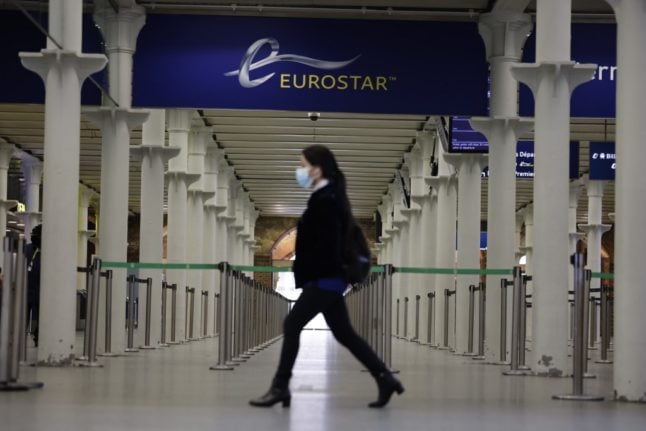On January 31st, in a last-ditch attempt to avoid a third lockdown, France closed its non-EU borders, however from March 12th there are exceptions in place for travel between certain countries.
Non-EU
France’s borders are closed to anyone coming in from outside the EU or the Schengen zone.
The only exceptions to the travel ban are people with motif imperiéux (compelling/essential reasons) for travel.
The full list of reasons are;
Family reasons
- The death of a parent, grandparent, child or sibling or visit to one of these family members who has received a terminal medical diagnosis (death certificate or doctor’s letter will be needed)
- Childcare by a parent or guardian with custody or visitation rights (court letter and proof of address)
- Providing vital assistance to a sick or disabled person (document establishing relationship)
- Travel for legal or judicial reasons (letter or summons)
- A legal or economic reason that makes it impossible to remain in the country you are travelling from eg the expiry of a residency card
- Travel for reasons of personal safety eg domestic violence or custody dispute (any documentation relating to the situation)
- Returning to your main residence from a trip that began before January 31st (proof of residency eg carte de séjour, receipt of application for carte de séjour or proof of address, plus tickets showing your outward journey)
- Students beginning or ending a period of study (documentation from the place of study)
Health reasons
- Medical emergency (one person can accompany the sick person if necessary, doctor’s letter or hospital appointment card)
Work-related reasons
- Vital work requiring an in-person presence where the work cannot be cancelled or postponed without disproportionate consequences (attestation from employer plus professional card if applicable)
- Health professionals engaged in Covid-related work (professional ID)
- Diplomatic or state work trips which cannot be cancelled or postponed (professional ID and/or letters from relevant ministers)
- High-level sports professionals participating in fixtures approved by the sports minister (professional ID and documentation from the sports ministry)
March 12th
From March 12th, some extra exemptions have been added to this list. They are;
- Couples who are married or in a civil partnership where one of the members is living abroad for professional reasons
- Minor children attending school in France while the family home is established abroad
- Couples with children, one living in France, the other abroad and separated.
- Students taking a competitive examination
- Returning to a main residence in France
These rules concern travel both in and out of France, so anyone wanting to leave France and travel to a non-EU country will also need a vital reason.
Exempt countries
From March 12th, seven non-EU countries have been granted an exemption, meaning that people can travel to or from these countries for any reason and do not need to prove that their trip is essential.
They are;
- Australia
- South Korea
- Israel
- Japan
- New Zealand
- The United Kingdom
- Singapore
Paperwork
People who are either travelling from an exempt country or fit one of the reasons for compelling travel need a negative PCR test taken within the previous 72 hours. They also need a permission form (attestation de déplacement et de voyage) stating their reason for travel, or a declaration that they have no Covid symptoms, depending on the country of origin. You can download the attestation or declaration HERE.
In short, travellers from most non-EU countries (apart from those seven exempted) need a test and the attestation but travellers from EU countries need a negative test and declaration saying they have no Covid symptoms.
Once in France, travellers from outside the EU are requested to self-isolate for 7 days at a location of their choice and then take a second test. This is a request and there are no checks on quarantine.
EU
Travel within the EU bloc and the Schengen zone is less restrictive, with no need to demonstrate a vital reason for travel – although both French and EU authorities ask people to keep travel to a minimum.
However, anyone arriving in France from an EU country will need a show a negative PCR test, taken within the last 72 hours and also a sworn statement that they do not have Covid symptoms (see above).
Tout déplacement en provenance d’un pays de l’UE sera conditionné à la présentation d’un test PCR négatif à partir de dimanche.
Cette mesure ne s’applique pas aux travailleurs transfrontaliers, ni aux routiers à l’exception du dispositif particulier pour l’Irlande.
— Jean-Baptiste Djebbari (@Djebbari_JB) January 29, 2021
Find full details on the rules, as well as exempt categories, HERE.



 Please whitelist us to continue reading.
Please whitelist us to continue reading.
I’ve read elsewhere that travel to and from certain countries such as Australia and New Zealand is exempt from the new restrictions. Is that true?
Hi, I live in NZ. My mother is in France. Before these changes we were exempt and could arrive in Paris, but travelling around France between regions I was advised was incredibly hard. My understanding is that now I cannot enter the country.
This would appear to have now changed…brilliant! Thanks France 😀
it doesn’t stipulate taking a second test after the seven days – it did in the previous rules; in fact i am due to take my test this week but now doesn’t seem to be neccessary (in any case it is all on honour nothing seemingly is logged)
Is it really the case that the same rules apply to travel OUT of France, that is to say a British national can only return to the UK if she has one of the same ‘compelling reasons’ as coming TO France from the UK (of course, with the negative PCR test and all the requirements for entry to the UK)?